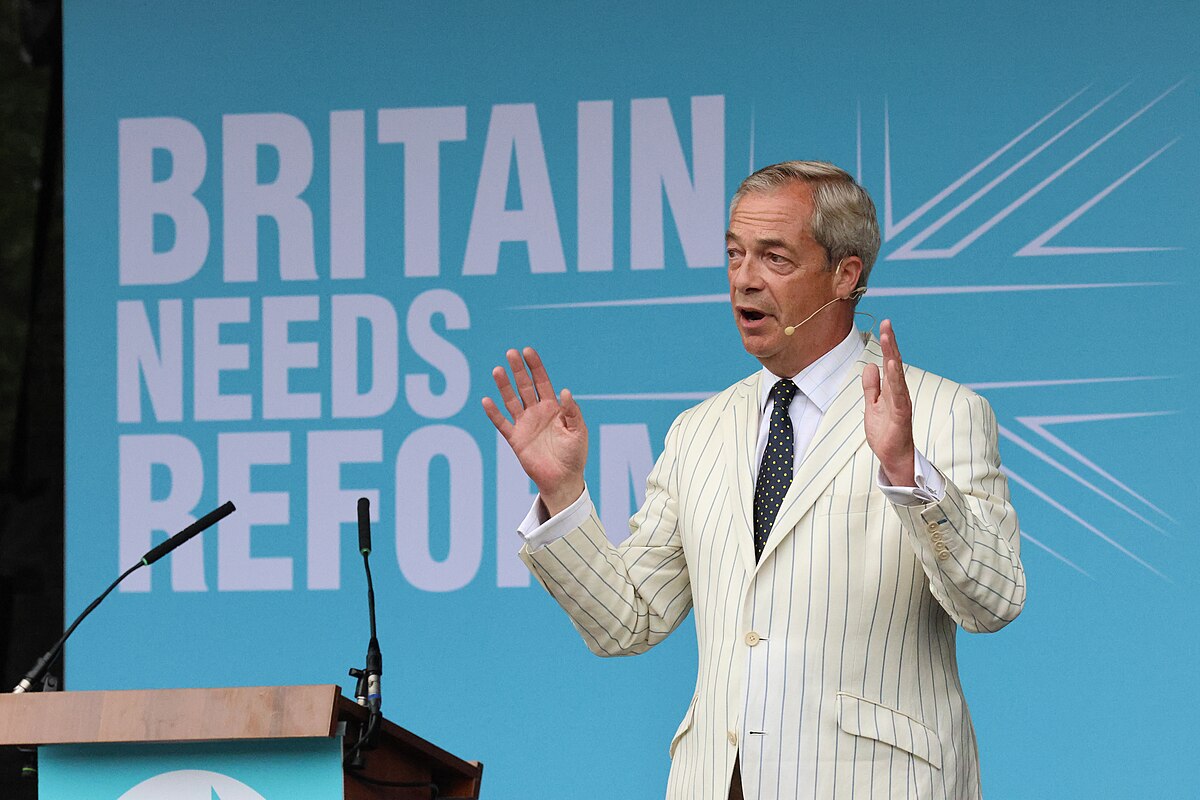Reform UK have finally confirmed appointments to local government committees in Cornwall this week, a month after their admittedly impressive local government gain of 28 out of 87 seats. This was after delaying appointments and slamming the other parties’ “undemocratic” moves to secure control of the council without Reform.
At the beginning of May, They gained another seat in the Commons and have stormed the gates of some local councils up and down England. But now they make up a considerable proportion of local councils, and have sizeable handfuls of others, they are going to have to prove themselves worthy of national governance. And one can perhaps predict with a faint and cautious optimism that they will fail at this challenge. They’ve bitten off very little, and I believe they will choke.
An overstated triumph in England’s local councils.
In Runcorn and Helsby, after Labour MP Mike Amesbury was suspended for assaulting a constituent in October 2024, a by-election was called. That is now a Reform UK seat, with MP Sarah Pochin beating Labour’s Karen Shore by a minute margin of 6 votes. In the Greater Lincolnshire Mayoral Election, Reform’s Andrea Jenkyns took the office, and in her acceptance speech made revolting comments about forcing migrants to live in tents, as many are forced to do in France. In Hull and East Yorkshire, Luke Campbell, former boxer and current meathead took the mayoralty, despite his every public appearance resembling a post-match interview in vague comments and gestures towards political “goodness”.
They’ve made enormous stomps towards power in England, it’s true, winning control in 12 councils, including Lancashire, Derbyshire, Nottinghamshire, Durham, Lancashire, and Leicestershire. And some councils where they haven’t secured wins, they’ve won enough seats to have a solid bloc that influence important decisions. In Cornwall and England they hold 800 seats, trailing behind even the Greens.
It is perhaps a bleak picture. But when placed in the context of the broader UK, they still stretch far behind. At time of writing, they hold 826 seats on UK councils, barely in the rear-view mirror of the other parties, who have strongholds in areas which didn’t hold elections on May 1st.
A win on Nigel’s back.
It’s perhaps a bit trite to say that local elections are in part beholden to the tidal shifts of Westminster politics. The naked media fixation on Nigel Farage perhaps decided the local elections, in fact it appears like an odd mirror on the smear perpetrated against Jeremy Corbyn during his time as Labour leader. This media obsession was seen in Cornwall also, where a national conference at which Farage gave a speech was used for the purposes of spin when peaceful antifascist protesters arrived outside Carn Brea leisure centre.
Even in the speeches and appearances where he wasn’t present, the smell of cigarettes and privately funded education hums in the air as he was mentioned over and over again. In their acceptance speeches, both Pochin and Jenkin made reference to their “great leader, Nigel Farage” in their speeches, the veritable Duce of Reform’s rise. They tip him to be the UK’s prime minister in a short time, and with the reality of the current situation, they seem overly buoyed. Without him, the party falls flat.
The reason for this is the vast majority of Reform party candidates and elected representatives lack the same something-something as their Great Leader. Richard Tice, to take one example, who looks for all the world like a washed-up cricket player, won his seat by a mere 5% of the votes in what was considered the most Brexit-heavy area of the United Kingdom. Indeed, YouGov polling in late 2023 suggested that a potential Farage leadership increased Reform’s popularity from 11% to 14% of total voters – this was half a year before he announced his leadership takeover and candidacy for Clacton. He commands so much media space that one would forget that it’s the Liberal Democrats that are the 3rd most popular party in the UK.
Time for Reform to back up all the talk.
Reform based their local election platform on the sheer unpopularity of mainstream politics, despite being a party made up of people with decades of experience at the top of British politics. In an Ipsos poll released 5 days before the election, the party was tipped by those surveyed to be the most trustworthy in local government was Reform. Those surveyed showed broad mistrust for all parties however, therefore damning the party with faint praise. Even so, this public trust was likely to be present – Reform have never been given the opportunity to mess everything up locally like Labour and the Conservatives have.
The job of local councils and local councillors is harsh and not well understood. They are constantly at the behest of national government policy, often only permitted to tinker around the edges, and having to be the one holding the knife when cuts are made. They’re also the one’s responsible for this year’s rise in council tax in Cornwall. Considering this in the context of what some have called the economic “libertarianism” of the lower-middle classes in predominantly rural and suburban areas like Cornwall- this is rarely ever popular. Some aspects of local government are very difficult for party popularity, and when Reform are the one’s making those unpopular decisions, they will have to conjure excuses very quickly, or face setbacks in support.
Fascists everywhere, and in this I would include Reform, are accustomed to propagandising a “politics of vibes” where very little policy is overtly communicated. Material details regarding taxing, spending, immigration, and other aspects of government policy are found in the small print, but not in party conferences or broadcasts. Instead, the vibes delivered come in a story about national decay, ethnic and “cultural” replacement, and a hazy project of national rebirth. All parties are bad for this “politics of vibes” approach at times, but for Reform, it’s omnipresent and stark. It’s probable that this haziness will reflect in how they manage local authorities, and for that they may lose support. In the fight against the far-right, their partial self-immolation is always appreciated.
Image Via: Owain.davies, CC BY-SA 4.0 https://creativecommons.org/licenses/by-sa/4.0, via Wikimedia Commons


Leave a Reply